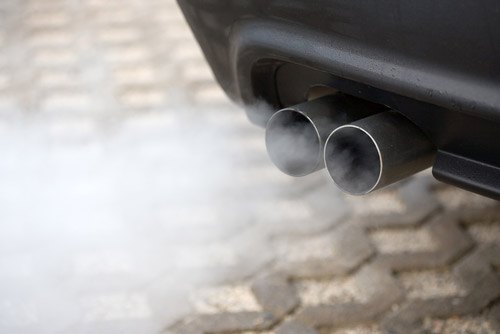War Of The Noses: Germany, Alone Against The Rest Of Europe In CO2 Debate

Senior members of the German government are leaning heavily on EU member states, warning “that German automakers could scale back or scrap production plans in their countries unless they support weakened carbon emissions rules,” Reuters writes. Cabinet members are said to focus their strong-arming on EU countries that recently have been bailed-out, mostly with German money. “They have tried everything at the highest level to pressure member states, in particular countries in the bailout club, to support their proposals,” a diplomat told Reuters. The EU Parliament is set to finalize rules that set a 95g CO2 / km limit by 2020.
The fight however seems not so much a quest for cleaner air than an underhanded fight for more breathing room for the auto industries of some member states.
Germany’s warnings that stricter limits could cost jobs go mostly unheeded. They resonate only with “a handful of central European countries with domestic auto production, but France, Britain and Italy are opposed,“ EU sources tell Reuters.
At first glance, one would think that the latter countries should have even more interest in keeping assembly lines humming than relatively well-off Germany. The truth is one level deeper. The 95g target hits first and foremost the makers of bigger bore nameplates, and those are predominately in Germany: Daimler, BMW, Audi, Porsche. Much to the chagrin of other countries and automakers, the Germans are not as much affected by the European malaise than other countries, but they would get disproportionally socked by the 95g rule. Makers of smaller displacement cars welcome anything to cut the haughty Germans down to size. “Making less-polluting cars is costly and restricts profit margins, which is why major German manufacturers want to delay the stricter rules,” says Reuters. And that’s why other countries can’t wait.
Their goal is to bleed off profits and resources from competiors, and possibly to put companies like Daimler in serious trouble. Ad if it’s under the green guise of a cleaner planet, even better. Who can say nein to that?

Bertel Schmitt comes back to journalism after taking a 35 year break in advertising and marketing. He ran and owned advertising agencies in Duesseldorf, Germany, and New York City. Volkswagen A.G. was Bertel's most important corporate account. Schmitt's advertising and marketing career touched many corners of the industry with a special focus on automotive products and services. Since 2004, he lives in Japan and China with his wife <a href="http://www.tomokoandbertel.com"> Tomoko </a>. Bertel Schmitt is a founding board member of the <a href="http://www.offshoresuperseries.com"> Offshore Super Series </a>, an American offshore powerboat racing organization. He is co-owner of the racing team Typhoon.
More by Bertel Schmitt
Latest Car Reviews
Read moreLatest Product Reviews
Read moreRecent Comments
- ToolGuy The other day I attempted to check the engine oil in one of my old embarrassing vehicles and I guess the red shop towel I used wasn't genuine Snap-on (lots of counterfeits floating around) plus my driveway isn't completely level and long story short, the engine seized 3 minutes later.No more used cars for me, and nothing but dealer service from here on in (the journalists were right).
- Doughboy Wow, Merc knocks it out of the park with their naming convention… again. /s
- Doughboy I’ve seen car bras before, but never car beards. ZZ Top would be proud.
- Bkojote Allright, actual person who knows trucks here, the article gets it a bit wrong.First off, the Maverick is not at all comparable to a Tacoma just because they're both Hybrids. Or lemme be blunt, the butch-est non-hybrid Maverick Tremor is suitable for 2/10 difficulty trails, a Trailhunter is for about 5/10 or maybe 6/10, just about the upper end of any stock vehicle you're buying from the factory. Aside from a Sasquatch Bronco or Rubicon Jeep Wrangler you're looking at something you're towing back if you want more capability (or perhaps something you /wish/ you were towing back.)Now, where the real world difference should play out is on the trail, where a lot of low speed crawling usually saps efficiency, especially when loaded to the gills. Real world MPG from a 4Runner is about 12-13mpg, So if this loaded-with-overlander-catalog Trailhunter is still pulling in the 20's - or even 18-19, that's a massive improvement.
- Lou_BC "That’s expensive for a midsize pickup" All of the "offroad" midsize trucks fall in that 65k USD range. The ZR2 is probably the cheapest ( without Bison option).


































Comments
Join the conversation
What a great example of the perils of outsourcing your domestic industry (and by extension, your sovereignty) to the whims of foreign-headquartered multinationals. "Their goal is to bleed off profits and resources from competiors, and possibly to put companies like Daimler in serious trouble." Hilarious, because that's been the goal of the Germans for years. You could replace Daimler with Chrysler in that sentence, and it would actually have a kernel of truth in it. One public policy initiative that may or may not threaten German economic hegemony, and we never hear the end of it. As if the people of the EU have absolutely no right, through their duly elected representatives, to even debate initiatives that could stick in the craw of German corporate boards.
The only cars that can meet this are plug-in hybrids and $hit boxes with ~1 liter engines. This is a fine limit if you only ever transport yourself and no belongings. Which I suppose is OK, because when the watermelon regulators are finished, no one in the EU will have any belongings to transport anyway. What's next, a tax on breathing? How about a tax credit for your next of kin if you off yourself? Idiots.